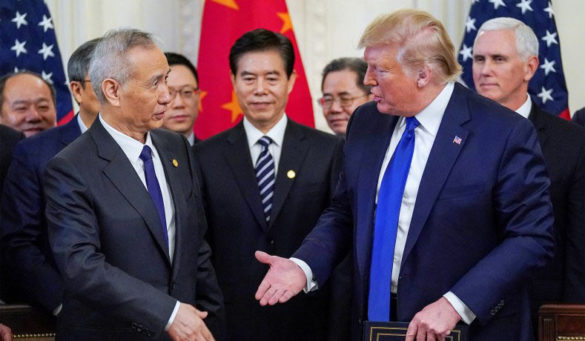
A Letter on Trade Policy
An email in response to my NRO article, “Navarro’s Faith-Based Case for Tariffs.”
Your recent observations on China and trade compel me to make a few observations for your consideration. I agree that Peter Navarro is a lightweight and [understand] how picking him apart might make you feel good. Robert Lighthizer has experience and credentials in this area and his willingness to work for us is worth mentioning. I concede that the initial impact of this initiative may be negative in the short run but the long term impact of inaction will be far worse. Leveling the playing field on trade is the right thing to do. I believe that you are missing the big picture on trade.
First, I strongly agree with Hank Greenberg’s opinion. I admit to confirmation bias but Hank knows China better than any living businessman. He supports his definition of “fairness” with historical facts. Where is the flaw in Hank’s reasoning?
Second, while the economic basis for tariffs appears sound, the geopolitical case is even stronger. I spent 50 years in the investment business and my longstanding motto was “Wise admit their mistakes, fools defend them.” Like Mr. Greenberg, Michael Pillsbury has time and grade on China. His book, “The Hundred-Year Marathon”, is an outright admission of the mistakes he and the U.S. intelligence community made over the last 50 years with respect to China. He makes a strong case that we made policy decisions on flawed intelligence and are living with the consequences. You might want to read the book.
I care deeply about what is happening to our country and believe that NRO’s “free traders” and “Never Trumpers,” The Wall Street Journal and lobbyists for “big business” are not looking at the issue in proper context. China has the patience to play the long game and our playbook, in Michael Pillsbury’s opinion, has been wishful thinking based on flawed intelligence. I encourage you to have an open mind and consider the opinions of Greenberg and Pillsbury.
My response: I thank the reader for taking the time to offer his thoughts.5
I find that many defenders of the administration’s trade policies, or critics of the critics of that policy, tend to reduce those policies to the trade war with China. But the administration has levied tariffs on exports from many countries, and the Navarro op-ed I was examining was a defense of all of those tariffs. Since Navarro is a top official in the administration and was making his argument in a highly influential newspaper, I thought it was worth pointing out the weaknesses of that argument. It is entirely possible that different arguments in favor of particular portions of the administration’s trade policy would make more sense.
I certainly agree that structural reforms in China would be desirable (as the Greenberg op-ed argued) and that China is a strategic competitor (as I take Pillsbury to argue). I am not so much of a free trader that I would abjure the use of tariffs to pressure China into making the changes we want. But like a lot of people who are not doctrinaire free traders, I thought a strategy of using the World Trade Organization and the Trans-Pacific Partnership offered a better chance of yielding progress than the one the administration chose: starting trade conflicts with multiple countries and then embarking on negotiations with China without clear objectives. We can’t know how the counterfactual course would have gone, but so far the administration’s strategy has not led to much in the way of Chinese reform.
Source: https://www.nationalreview.com/corner/trump-adminisration-trade-policy-tariffs-china/